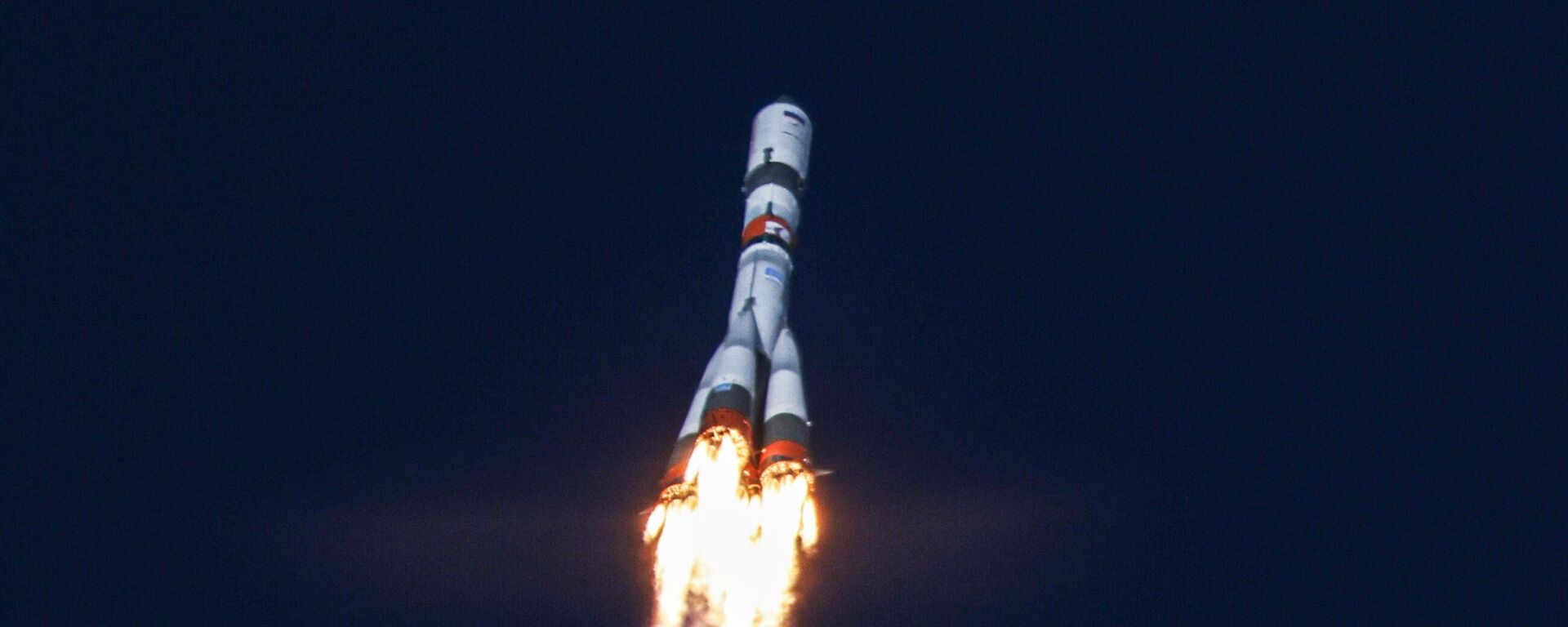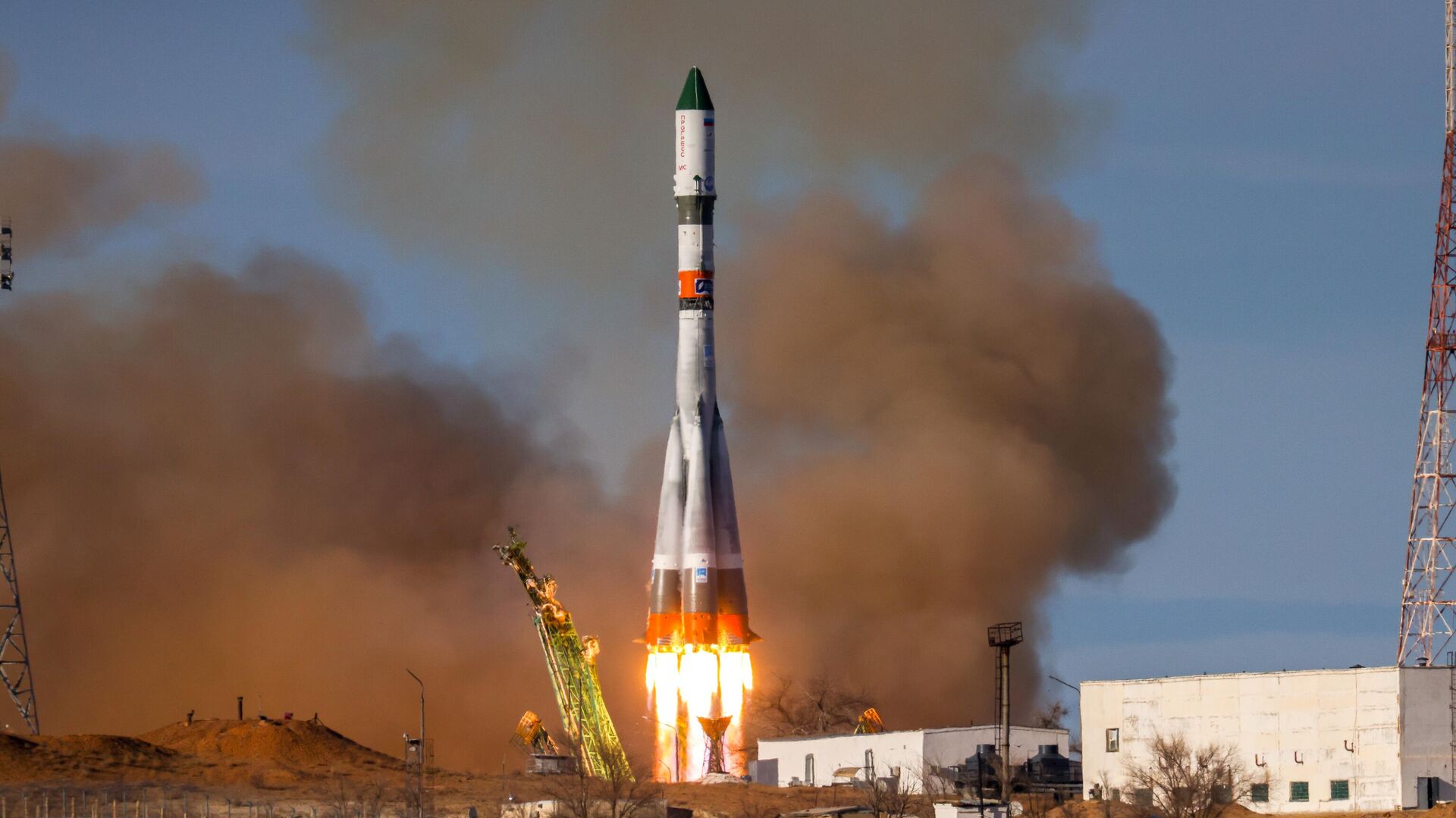https://sputnikglobe.com/20240217/russias-progress-ms-26-cargo-spacecraft-docks-to-international-space-station-1116838808.html
Russia's Progress MS-26 Cargo Spacecraft Docks to International Space Station
Russia's Progress MS-26 Cargo Spacecraft Docks to International Space Station
Sputnik International
The Progress MS-26 cargo spacecraft on Saturday docked to Russia's Zvezda service module of the International Space Station (ISS), according to a live broadcast by Russian state space corporation Roscosmos.
2024-02-17T06:39+0000
2024-02-17T06:39+0000
2024-02-17T06:39+0000
russia
russia
baikonur
moscow
roscosmos
international space station (iss)
soyuz
https://cdn1.img.sputnikglobe.com/img/07e7/0c/01/1115321711_0:173:3072:1900_1920x0_80_0_0_4ee5ab85a8fe8182a5a9683dffe4d56a.jpg
The spacecraft was launched on the Soyuz 2.1a rocket from the Baikonur cosmodrome at 06:25 a.m. Moscow time (03:25 GMT) on Thursday. Progress MS-26 delivered to the station more than 2.5 tonnes of cargo, including nearly 1.5 tonnes worth of hardware and equipment for the station's systems and scientific experiments, clothing, food, medical and sanitary supplies for the ISS crew, 580 kilograms (1,278 pounds) of fuel, 420 kilograms of drinking water and 40 kilograms of nitrogen. The cargo spacecraft also carried consumables for the new scientific experiment dubbed "Fullerene" to grow fullerite crystals in the Nauka module — the third crystalline form of carbon, which is a new class of semiconductors, as well as equipment for the new scientific experiment Orbita-MG to create a monitoring system that will find cracks and other leaks in the station's hull. The station crew consists of ISS Expedition 70 members — Roscosmos cosmonauts Nikolai Chub, Oleg Kononenko and Konstantin Borisov, NASA astronauts Jasmin Moghbeli and Loral O'Hara, European Space Agency astronaut Andreas Mogensen and Japan Aerospace Exploration Agency astronaut Satoshi Furukawa.
https://sputnikglobe.com/20240215/rocket-with-russias-progress-ms-26-space-freighter-launches-from-baikonur-to-iss-1116791831.html
russia
baikonur
moscow
Sputnik International
feedback@sputniknews.com
+74956456601
MIA „Rossiya Segodnya“
2024
Sputnik International
feedback@sputniknews.com
+74956456601
MIA „Rossiya Segodnya“
News
en_EN
Sputnik International
feedback@sputniknews.com
+74956456601
MIA „Rossiya Segodnya“
Sputnik International
feedback@sputniknews.com
+74956456601
MIA „Rossiya Segodnya“
progress ms-26 cargo spacecraft, international space station
progress ms-26 cargo spacecraft, international space station
Russia's Progress MS-26 Cargo Spacecraft Docks to International Space Station
MOSCOW (Sputnik) - The Progress MS-26 cargo spacecraft on Saturday docked to Russia's Zvezda service module of the International Space Station (ISS), according to a live broadcast by Russian state space corporation Roscosmos.
The
spacecraft was launched on the Soyuz 2.1a rocket from the Baikonur cosmodrome at 06:25 a.m. Moscow time (03:25 GMT) on Thursday.
Progress MS-26 delivered to the station more than 2.5 tonnes of cargo, including nearly 1.5 tonnes worth of hardware and equipment for the station's systems and scientific experiments, clothing, food, medical and sanitary supplies for the ISS crew, 580 kilograms (1,278 pounds) of fuel, 420 kilograms of drinking water and 40 kilograms of nitrogen.
The cargo spacecraft also carried consumables for the new scientific experiment dubbed "Fullerene" to grow fullerite crystals in the Nauka module — the third crystalline form of carbon, which is a new class of semiconductors, as well as equipment for the new scientific experiment Orbita-MG to create a monitoring system that will find cracks and other leaks in the station's hull.

15 February 2024, 04:14 GMT
The station crew consists of ISS Expedition 70 members — Roscosmos cosmonauts Nikolai Chub, Oleg Kononenko and Konstantin Borisov, NASA astronauts Jasmin Moghbeli and Loral O'Hara, European Space Agency astronaut Andreas Mogensen and Japan Aerospace Exploration Agency astronaut Satoshi Furukawa.



